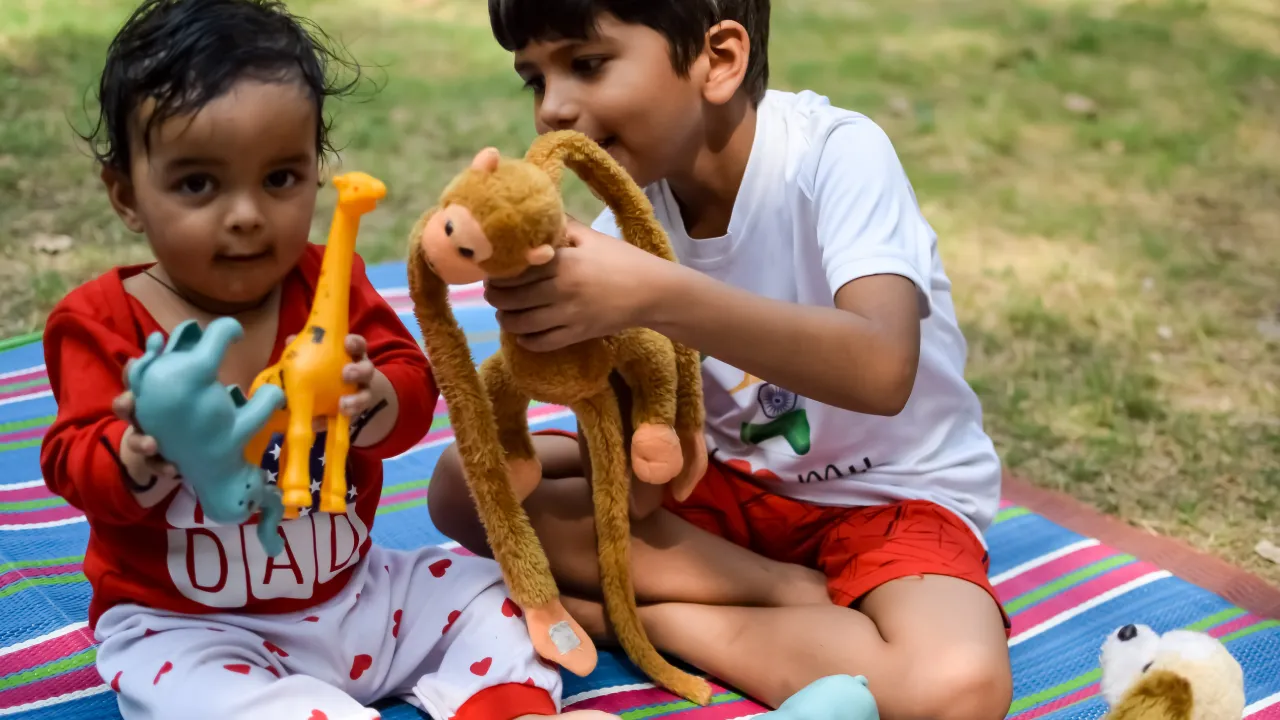Orphaned children, who have lost one or both parents, face a multitude of challenges that affect their emotional, social, and cognitive development. The absence of parental figures often leaves a void that can hinder their growth and well-being. In such scenarios, play emerges as a powerful tool that significantly impacts their lives, fostering resilience, social skills, and emotional healing. This article delves into the multifaceted role of play in the lives of orphaned children and explores why it is essential for their holistic development.
The Importance of Play
Play is a fundamental aspect of childhood that contributes to various developmental domains. It is through play that children learn to navigate their world, understand social norms, and develop crucial cognitive and motor skills. For orphaned children, play serves as a therapeutic mechanism that can mitigate the adverse effects of trauma and loss.
Emotional Healing and Expression
Orphaned children often experience a range of intense emotions, including grief, anger, confusion, and loneliness. Play provides a safe space for them to express these feelings in a non-verbal manner. Activities like drawing, role-playing, and storytelling allow children to project their inner thoughts and emotions, facilitating emotional release and healing. For instance, a child might reenact scenarios involving their lost parent, which can help them process their grief and come to terms with their loss.
Building Social Skills
Social interactions are crucial for the development of communication skills, empathy, and cooperation. Orphaned children, particularly those in institutional settings, may have limited opportunities for social engagement. Play creates an environment where they can interact with peers, learn to share, negotiate, and resolve conflicts. Group activities and team sports are particularly effective in teaching children how to work collaboratively, respect others, and develop friendships, which are essential for their social integration.
Cognitive Development
Cognitive development is profoundly influenced by play, which stimulates critical thinking, problem-solving, and creativity. Educational games, puzzles, and imaginative play challenge children to think abstractly and enhance their intellectual capabilities. For orphaned children, who might face educational disruptions, play-based learning can bridge gaps in their knowledge and promote a love for learning. It helps them develop attention, memory, and language skills, which are crucial for academic success.
Physical Development
Physical play is vital for the development of motor skills, coordination, and overall health. Activities like running, jumping, climbing, and playing sports improve physical fitness and encourage a healthy lifestyle. For orphaned children, who might have limited access to outdoor spaces and physical activities, structured play ensures they remain active and develop a strong, healthy body.
Play as Therapeutic Intervention
Various therapeutic approaches incorporate play to support orphaned children. Play therapy, for example, is a well-established method used by psychologists and counselors to help children express their emotions and experiences. Through guided play, therapists can gain insights into a child’s psyche and address psychological issues such as anxiety, depression, and post-traumatic stress.
Play Therapy
Play therapy involves using toys, games, and creative activities to help children express their thoughts and emotions. It is particularly beneficial for orphaned children who may struggle with verbal communication. A trained therapist can observe the child’s play patterns to understand their emotional state and intervene accordingly. This therapeutic process not only provides emotional relief but also helps in building trust and a sense of security in children.
Art and Music Therapy
Art and music therapy are other forms of therapeutic play that have shown positive outcomes for orphaned children. Art therapy allows children to create visual representations of their feelings, which can be a powerful outlet for those who have difficulty expressing themselves verbally. Music therapy, on the other hand, uses rhythm, melody, and instruments to engage children in a therapeutic process. Both forms of therapy can significantly reduce stress, improve mood, and enhance emotional resilience.
Creating Playful Environments
For play to be effective, it is essential to create environments that are safe, supportive, and stimulating. Institutions and caregivers must prioritize the establishment of spaces and opportunities for play.
Safe and Stimulating Play Areas
Creating safe play areas equipped with a variety of toys and materials is crucial. These spaces should encourage exploration and creativity while ensuring the safety of the children. Age-appropriate play equipment and materials should be provided to cater to the diverse interests and developmental stages of the children.
Inclusive Play
Inclusive play ensures that all children, regardless of their physical or cognitive abilities, can participate in play activities. Adaptive toys and equipment should be available to accommodate children with disabilities. This inclusivity not only promotes equality but also teaches children empathy and acceptance of differences.
Trained Caregivers
Caregivers and staff in orphanages and child care institutions play a pivotal role in facilitating play. Training caregivers in the principles of child development and the importance of play can enhance their ability to support and engage children effectively. Caregivers should be encouraged to participate in play activities, model positive behavior, and create an emotionally supportive environment.
Challenges and Solutions
Despite its importance, promoting play for orphaned children comes with challenges. Limited resources, lack of trained personnel, and cultural attitudes towards play can hinder its implementation. Addressing these challenges requires a concerted effort from governments, NGOs, and communities.
Resource Allocation
Allocating resources for the development of play areas and the procurement of play materials is essential. Governments and organizations must prioritize funding for child welfare programs that include provisions for play. Public-private partnerships can also be explored to support these initiatives.
Training Programs
Developing training programs for caregivers and staff can enhance their understanding of the importance of play and equip them with skills to facilitate it. Workshops, seminars, and online courses can be utilized to reach a broader audience and ensure that caregivers are well-prepared to support the children in their care.
Community Engagement
Engaging the community in supporting play initiatives can create a more inclusive and supportive environment for orphaned children. Volunteers can be recruited to organize play activities, mentor children, and provide additional support. Community awareness campaigns can also help shift cultural perceptions and emphasize the value of play in child development.
Conclusion
Play is not a mere recreational activity; it is a vital component of healthy childhood development, particularly for orphaned children who face unique challenges. Through play, these children can heal emotionally, build social skills, enhance cognitive abilities, and develop physically. It serves as a bridge to a more hopeful and resilient future, offering them the tools they need to navigate their world with confidence and joy. By recognizing and supporting the essential role of play, we can create environments where orphaned children thrive, ensuring they have the opportunity to grow into well-rounded, emotionally healthy individuals.

